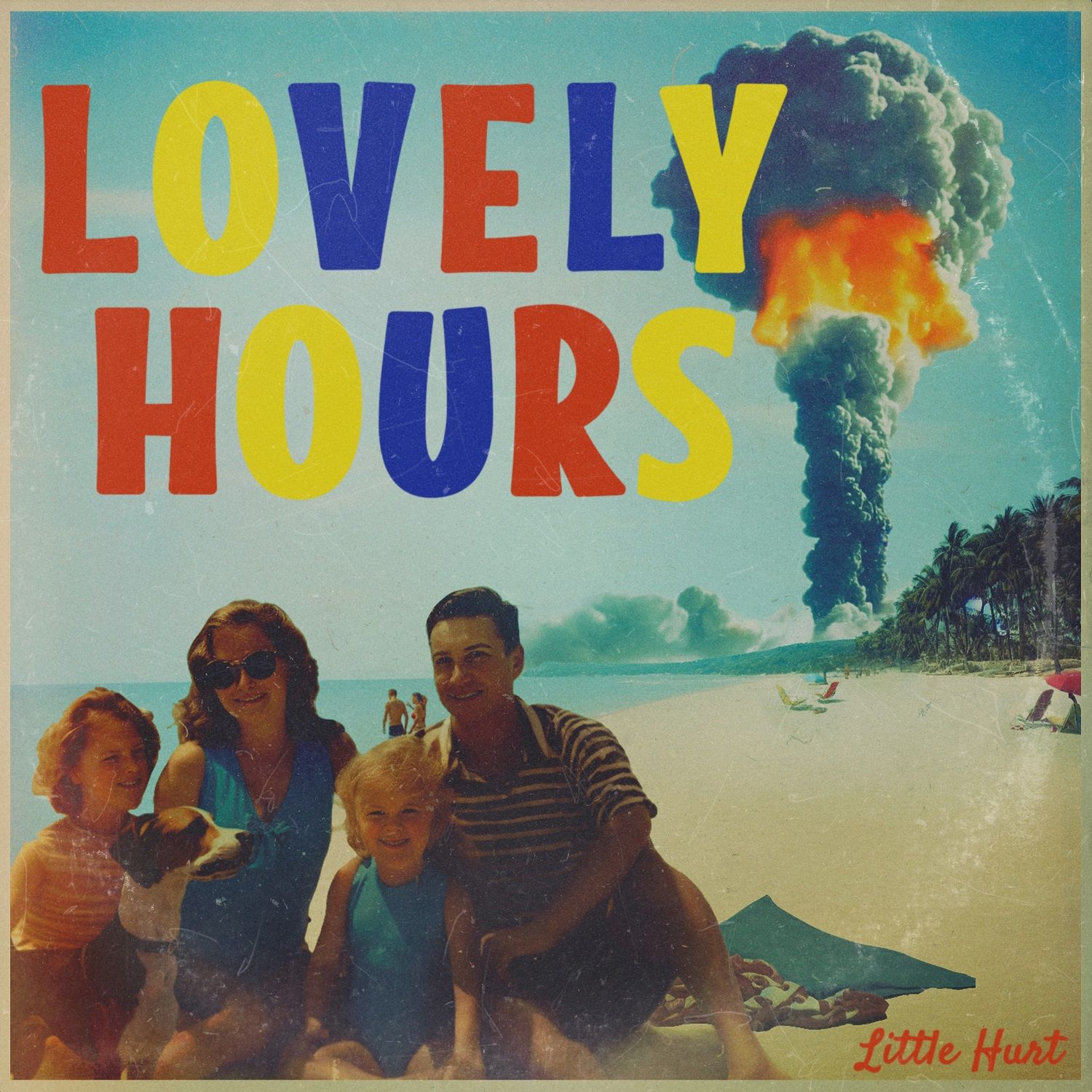Colin Dieden proved himself during his tenure as The Mowgli’s frontman. The Calabasas, California-based band enjoyed a long run as one of the best indie acts on the scene. Dieden decided to go in a more pop direction and stepped out on his own in 2019 to launch a solo career under the name Little Hurt. His solo work has earned fulsome praise from an assortment of critical voices and his new album release Lovely Hours illustrates the continued exponential growth that he’s experiencing as a songwriter and vocalist.
It is his songwriting, however, that deserves particular attention. It isn’t his intention, for sure, but Lovely Hours’ ten tracks constitute a quasi-concept album of sorts. They are relationship songs, invariably but not exclusively unhappy, and shadows tinge even the scattered hopeful notes. There’s a long tradition for such song cycles in popular music. Colin Dieden’s vision of love and domestic bliss may remind some of a streetwise male Joni Mitchell with a barbed tongue and prone to ingesting too many chemicals.
The lyrics for the album’s title song serve as notice that happy endings are scarce in Dieden’s affairs of the heart. His writing is full of interesting near-rhymes and eschews any pseudo-poetic flourishes. Keeping things on a conversational level works well with the slant taken by many of his arrangements. They are rhythm centric with the guitar working more as orchestral ornamentation than a lead instrument. The singing boasts a strong sense of the melodic.
Guitar, however, does have a prominent presence during the first half of the album. “Get Out of My Life”, “Modern Art”, and “I Can Do Better Than You” flirt with power pop & punk sensibilities shaded with alt-rock influences. It isn’t mindless thrashing. The first of the aforementioned trio rampages through three minutes and change with intelligent twists in its song structure. “Modern Art”, however, leans more in a power pop direction despite its frantic pace. The last of the three is the lead track from Lovely Hours , “I Can Do Better Than You”, has an earworm chorus tailor-made for singing along to, while blasting it on full volume on a trip to the beach. It isn’t difficult imagining that it will be a real banger in a live setting thanks to a refrain certain to stir up any crowd. The universality of his songwriting, despite its clear personal direction, is unquestionable.
“Pineapple Pizza” is a cunning piece of work. Equating the overall grief you’re enduring with your significant other to how they crap on what you like on your pizza is a new one. He brings together the originality of that with lean, economical lines tailored to the music. It’s a potent combination. Outright bile slips through during the song and the added venom gives “Pineapple Pizza” an unequaled bite. “See You Again” avoids the rancor, however, and acts as a welcome change for the album. This hard-driving track has an affirmative push as it depicts Dieden in the early throes of love, hesitant to give himself over to the moment, but falling harder every day.
He ends Lovely Hours in a similar fashion. “Down Bad for You” has a guest turn from indie vocalist Stu Da Boi and, despite sharing many of the same sentiments as the preceding song, has its own character unlike what’s come before. Dieden and Stu Da Boi work well together on this song. A closer listen to the lyrics reveals him still struggling, albeit in a happier way, with love’s thorny effects. It’s a spirited close to a fantastic album with something to offer every fan of modern popular music.
Troy Johnstone
